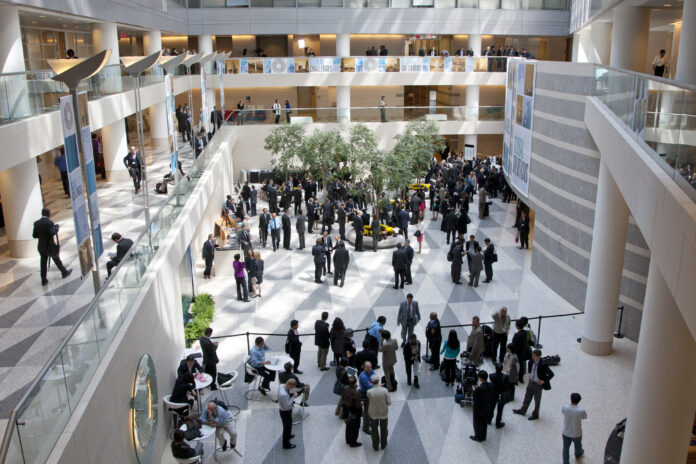The World Bank has revealed that Nigeria lost a staggering N10 trillion in revenue in 2022 due to the fuel subsidy and multiple exchange rates. These losses, according to the bank, significantly undermined the country’s economic stability before President Bola Tinubu’s reforms.
This disclosure was made by Indermit Gill, the Senior Vice President of the World Bank Group, during the 30th Nigerian Economic Summit held in Abuja. The summit, organised by the Nigerian Economic Summit Group and the Ministry of Budget and National Planning, brought together key stakeholders to discuss Nigeria’s economic future.
According to Indermit Gill, Nigeria lost about N5.2 trillion in foregone revenue due to the government’s decision to peg the exchange rate. At the same time, the fuel subsidy, which kept the price of Premium Motor Spirit (PMS) artificially low, gulped another N4.5 trillion.
Together, these two subsidies amounted to N10 trillion in losses for the country in 2022. This figure is equivalent to around $15 billion, a sum that could have been used to transform critical sectors of the economy, Gill noted.
“Last year before the reforms, the official exchange rate was roughly N455 to the dollar,” said Gill. “But in the parallel market, the rate was closer to N700 per dollar. For every dollar allocated at the official rate, the government was losing around N250. The total loss in foregone revenue from oil, customs import duties, and taxes amounted to N5.2 trillion, more than 3% of Nigeria’s GDP.”
Gill further elaborated on how the fuel subsidy also played a massive role in draining Nigeria’s resources. In 2022, the cost of subsidizing PMS to keep its price below the market level amounted to N5.7 trillion. This subsidy consumed 2% of Nigeria’s GDP.
Together, both the fuel subsidy and the exchange rate peg accounted for N10 trillion or about 5% of Nigeria’s GDP. The World Bank official stressed that such losses severely limited the government’s ability to invest in infrastructure, healthcare, education, and other vital sectors.
“You can do a lot with 5% of a country’s GDP,” Gill said. “This is money that could have been used to build roads, improve schools, and fund hospitals. Instead, it was lost to unsustainable policies.”
Gill warned that by the end of 2022, Nigeria was on the verge of an economic collapse. He highlighted that the Central Bank of Nigeria (CBN) was forced to print money to cover the costs of maintaining the exchange rate and funding the fuel subsidy. This practice, known as “ways and means advances,” contributed to rising inflation and mounting debt.
“Nigeria was dangerously close to a full-blown economic crisis,” Gill said. “The Central Bank’s reliance on printing money to finance the government’s expenses only worsened the situation. By 2022, debt service had consumed nearly all government revenues, and the public debt was skyrocketing.”
He added that the fiscal cost was only part of the problem. There was also a wider economic impact that included implicit taxes on non-oil exports, such as manufacturing and agriculture. These sectors faced a 35% tax burden because of the exchange rate misalignment.
However, Gill noted that Nigeria’s decision to implement critical reforms, such as removing the fuel subsidy and unifying the exchange rate, has set the country on a more sustainable path. These reforms were introduced shortly after President Tinubu took office in May 2023, marking a significant shift in Nigeria’s economic policy.
By removing the fuel subsidy, the government eliminated a huge drain on its resources. At the same time, unifying the exchange rate helped to stop the revenue leakages caused by the wide gap between the official and parallel market rates.
These changes, while initially painful for many Nigerians, are expected to improve the country’s fiscal outlook in the long run. The World Bank has already approved a $2.25 billion loan to support Nigeria’s reform agenda, which includes efforts to stabilize the economy and promote inclusive growth.
Gill emphasized that the reforms introduced by President Tinubu’s administration are crucial for Nigeria’s long-term economic stability. He compared the current reforms to those undertaken in 2003 and 2007, which helped to spur growth in the country.
“These reforms are exactly what Nigeria needs to get back on track,” he said. “The removal of the fuel subsidy and the unification of the exchange rate are critical steps in restoring confidence in the naira and improving Nigeria’s fiscal position.”
However, Gill also warned that more work needs to be done to ensure that the benefits of the reforms are felt across the economy. He called on the government to continue implementing policies that promote investment in key sectors like manufacturing, agriculture, and technology.
Despite the positive outlook, Nigeria still faces significant challenges. The removal of the fuel subsidy, while necessary, has led to higher fuel prices and inflation, putting pressure on households and businesses.
The World Bank has urged the government to introduce measures to cushion the impact of these reforms on the most vulnerable Nigerians. This could include expanding social safety nets, improving healthcare services, and investing in education and job creation programs.
At the same time, Nigeria has an opportunity to turn its vast oil wealth into a tool for development. Gill pointed out that the reforms give the country a chance to reinvest its oil revenue in infrastructure, education, and healthcare, rather than wasting it on subsidies and unsustainable policies.

